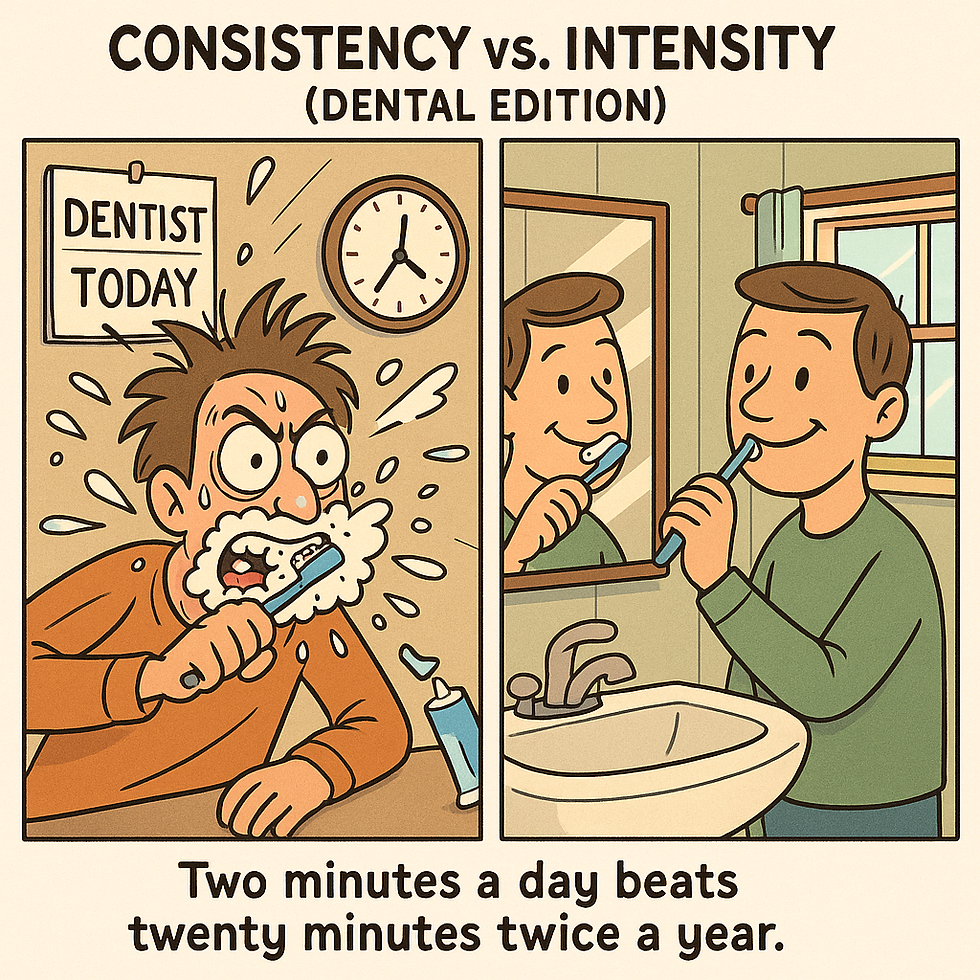Just start with the easy ones.
- Jun 22, 2025
- 2 min read
Updated: Jun 26, 2025

Ever stare down a task so big and confusing that your brain just kind of... locks up?
That was me a few years ago. I was working as a construction project scheduler when I got handed a monster of an assignment: cost-load the entire project schedule. This schedule would be used to invoice the client using a simplified earned value management (EVM) approach. Sounds straightforward enough—until you realize I had never done anything like that before.
No template. No cheat sheet. Just a deadline and a screen with lots of blank cells.
The thing about EVM is that it ties together scope, schedule, and cost to give you a snapshot of project performance. It can be powerful, but also super intimidating if you’ve never had to build one from scratch. I didn’t know what line items to start with. Should I tackle the big-ticket tasks first? Break it down by phase? Try to mirror our budget codes? Every path felt overwhelming.
So I went to my boss, looking for some sage wisdom or maybe a magic spreadsheet. All he said was,
"Just start with the easy ones."
Not exactly the groundbreaking advice I was hoping for.
But it turns out, that one sentence saved me. I went back to my desk and did just that. I picked a handful of straightforward activities—things like mobilization or general conditions—and added cost values to them based on our estimate and the pricing breakdown we used to win the job. Nothing fancy, just a few clean wins.
And then something interesting happened.
With those done, I could see a little more clearly. Those easy wins gave me a framework—a kind of map I could use to approach the rest. The next tier of tasks wasn’t so scary anymore. I started grouping similar items together, developing rules of thumb and logic I could apply across multiple activities. I figured out how to handle things like shared resources or overlapping scopes. Eventually, I even tackled the gnarly stuff like procurement packages and multi-trade work areas.
Each small victory gave me the confidence and clarity to tackle the next level of complexity. It was like leveling up in a video game. And by the end of it? I had built a fully cost-loaded, client-facing schedule that actually worked. No meltdown required. Yes, some late nights.
The lesson stuck with me: when you're facing a massive, complex task—especially something outside your comfort zone—don’t try to solve it all at once. Don’t get paralyzed by the big picture. Start with what you know. Start with what’s easy.
Momentum is magic. Every bite you take gives you a better sense of the shape of the elephant.
I still carry that advice with me today, whether I’m building a schedule, troubleshooting a delay, or mentoring someone new to the field. If you’re in construction—or any job, really—you’re going to run into the occasional beast of a task. Just remember: you don’t have to eat the whole elephant in one sitting.
Start small. Build momentum. Figure out the rest as you go.
It worked for me, and I promise—it’ll work for you too.




Comments